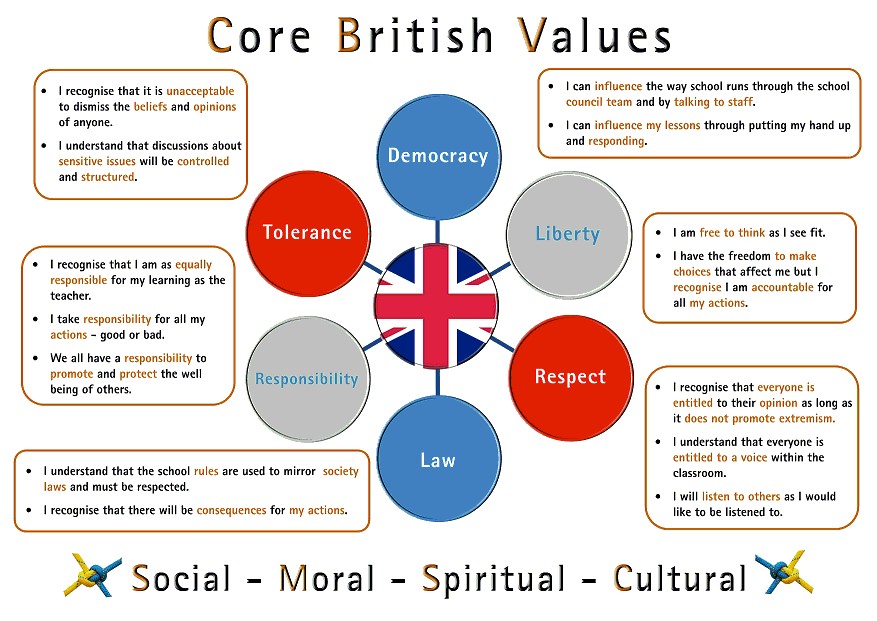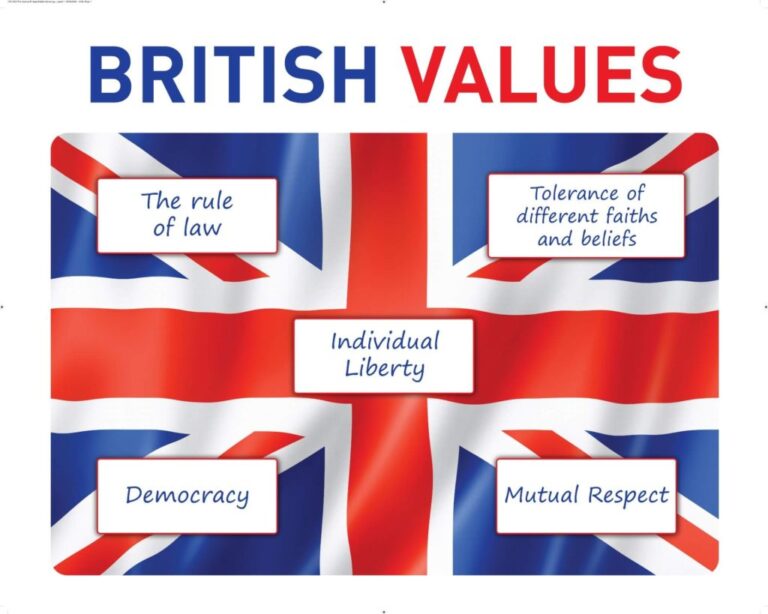Democracy is a shared British value because it empowers citizens to have a say in decision-making. However, The potential causes are the Protection of Individual Rights, Rule of Law, Political Participation, Social Cohesion, Evolutionary Nature, International Influence, and mutuality
The historical legacy of events like the Magna Carta and the commitment to individual rights reflect the nation’s dedication to accountability and transparency in governance.
In the following section, you will get to the reasons and the history of British values.
Historical Context
The historical context of democracy in Britain is rooted in the Magna Carta of 1215, which laid the groundwork for limited government and the rule of law. Over the centuries, the country experienced a gradual evolution of democratic institutions and practices.
Notably, the establishment of Parliament and the extension of voting rights to broader segments of society contributed to the development of the modern democratic system. Consequently, this system emphasizes the importance of the rule of law and relies on an independent judiciary to ensure accountability and transparency in governance.
Democratic Institutions in Britain:

In the United Kingdom, democratic institutions have evolved through centuries, with Parliament serving as the primary legal body, consisting of the House of Commons and the House of Lords.
In fact, The Prime Minister, as the head of government, makes policy choices, while an independent judiciary guarantees that the law is followed. Also, Local governments also handle regional concerns, ensuring accountability, transparency, and citizen engagement in governance.
Political Culture and Civic Engagement:
In Britain, political culture is characterized by a strong tradition of democratic values and civic engagement, which further reinforces the emphasis on individual rights and the rule of law, fostering accountability in governance. Citizens actively participate through voting, political activism, and media engagement, thereby contributing to a vibrant and active democracy.
Challenges and Evolving Democracy:
Political Polarization: Similar to many other democracies across the world, Britain struggles with a divide in politics which creates a situation in which parties and voters are more split on a range of issues. This division can make it more difficult to rule effectively, which in turn makes it harder to come to a consensus on policies.
Erosion of Trust in Institutions: Over time, trust in political institutions, including Parliament and political leaders, has declined. This erosion of trust can be attributed to scandals, perceived corruption, and broken promises, which collectively contribute to a lack of faith in the democratic process and institutions.
Electoral Participation: Despite rising levels of civic involvement, voter turnout has been a source of worry in past elections. Encouragement of more inclusive and accessible voting systems, on the other hand, is critical to ensuring that all views are heard in the democratic process.
Media Landscape and Misinformation: The rise of digital media has presented challenges in combating misinformation and the spread of fake news. An informed electorate is essential for a healthy democracy, but misinformation can undermine citizens’ ability to make well-informed decisions.
Constitutional Issues: The lack of a written constitution and ongoing debates over devolution and constitutional reform pose challenges to the country’s democratic stability.
Furthermore, issues related to the balance of power between the central government and devolved administrations can be contentious
Globalization and Populism: Globalization and the rise of populism have had an influence on British political discourse and governance. Populist movements have the potential to undermine existing democratic norms and institutions, causing uncertainty and divisiveness.
Brexit and Identity Politics: The process of leaving the European Union (Brexit) has amplified identity politics and divisions within the country, This has sparked questions about national identity and the destiny of the union.
The reason why is democracy a shared British value
Protection of Individual Rights:
Democracy in Britain is closely tied to the protection of individual rights and liberties. This notion that every citizen is entitled to fundamental rights, such as freedom of speech, assembly, and religion, is deeply ingrained in the British consciousness.
Moreover, it provides a platform for citizens to express their opinions, challenge authorities, and advocate for their rights without fear of retribution.
Rule of Law: The idea that everyone, especially those in positions of authority, is subject to the law provides accountability and transparency in governance. On top of that, the independent court serves as a check on the government’s activities and decisions, ensuring that they are legal and constitutionally sound.
Political Participation: Promotes vigorous public participation in the political process. Citizens can choose their representatives through periodical elections at various levels of government. Plus, coalitions of politicians provide a forum for opposing viewpoints and ideologies, enabling productive debates and discussions on national issues.
Social Cohesion: In a country with a rich tapestry of cultures, languages, and traditions, democratic values act as a common ground that transcends individual differences. By embracing democracy, Britons uphold the belief in inclusivity and equal representation for all citizens, regardless of their background.
Evolutionary Nature: Through various reforms and expansions of voting rights, the nation has demonstrated a commitment to progress and equality. As a result, the ability to adapt and evolve is a significant aspect of why democracy remains a shared value in modern Britain.
International Influence: The country has supported democratic movements, advocated for human rights, and participated in international initiatives to strengthen democratic institutions worldwide. In this manner, this dedication to freedom contributes to the idea of it as fundamental to British ethics.
Mutual respect & tolerance of different faiths and beliefs: Learning that not everyone holds the same views and opinions. While not forcing our own opinions or values on others, we must respect their values, thoughts, and beliefs.
FAQ
Is there a link between democracy and British Colonisation?
Yes. British colonization had a significant influence on the spread of democratic ideals and systems to various parts of the world. While British colonial rule was often characterized by unequal power dynamics and exploitation, it also introduced elements of British governance, including democratic institutions and principles.
When did Britain become a representative democracy?
Many historians credit the Reform Act of 1832 with launching modern representative democracy in the United Kingdom.
Why is Britain called the Mother of Parliament?
The Westminster system is referred to be the “mother of parliaments” since it influenced the political structures of the countries that were controlled by the British Empire.
Who called the first English Parliament?
Simon de Montfort’s Parliament of 1265
Who named Britain?
The ancient Greek transliteration of the P-Celtic term was first used in periplus by Pytheas of Massalia, but no copies survive.
Conclusion
The emphasis on democratic principles, ranging from individual rights and inclusivity to accountability and active citizen participation, forms a foundational cornerstone of British identity.
As a result, as Britain continues to evolve, its steadfast dedication to democratic ideals serves as a unifying force that bridges differences, fosters unity, and ensures that the collective voices of its citizens, irrespective of background, continue to shape the trajectory of a vibrant and flourishing society.

